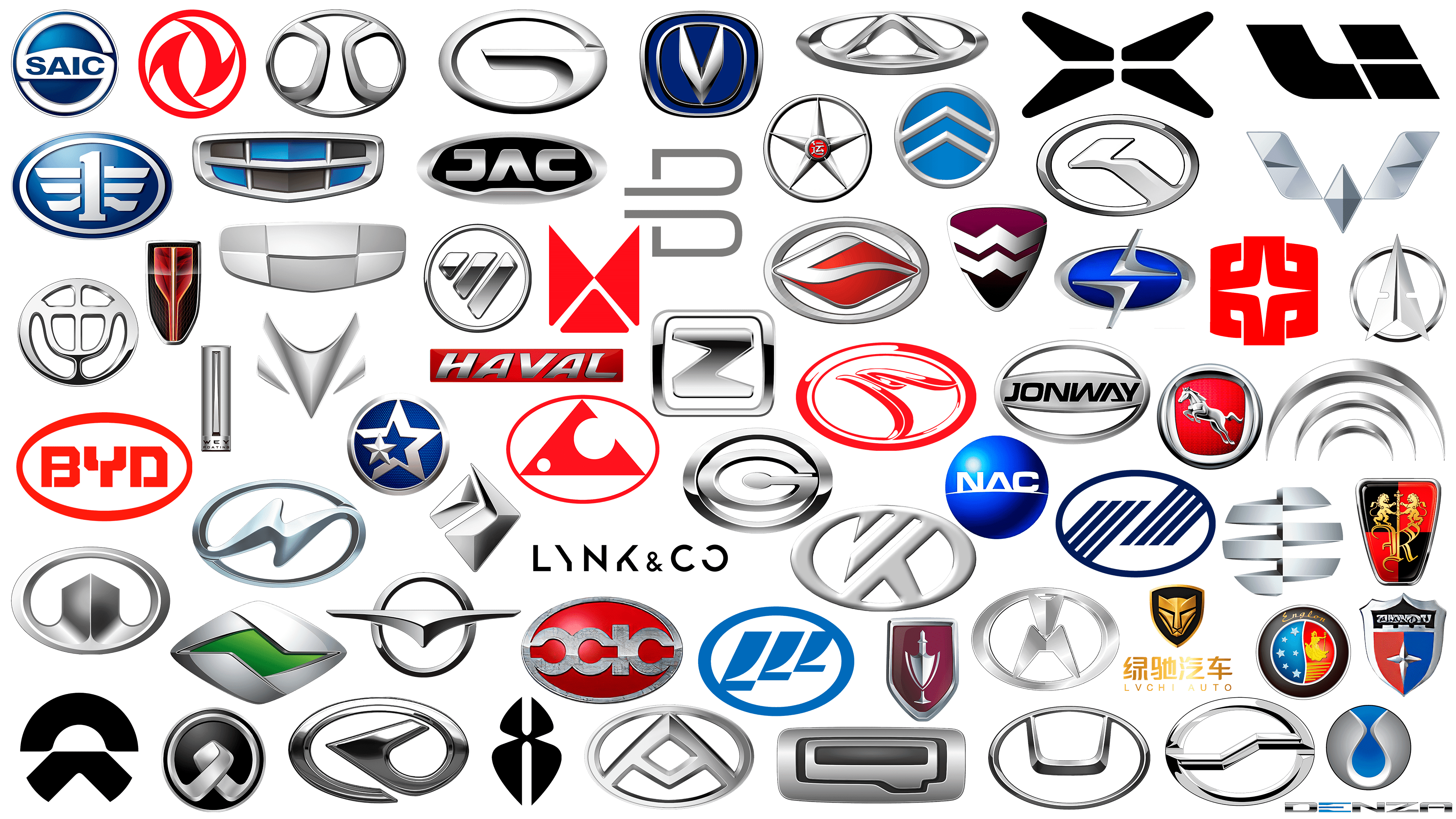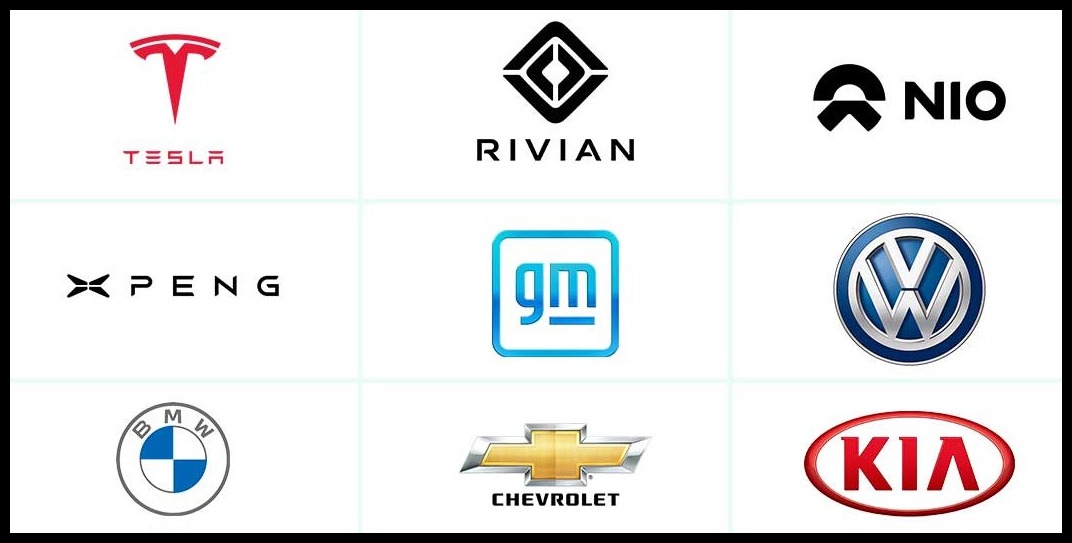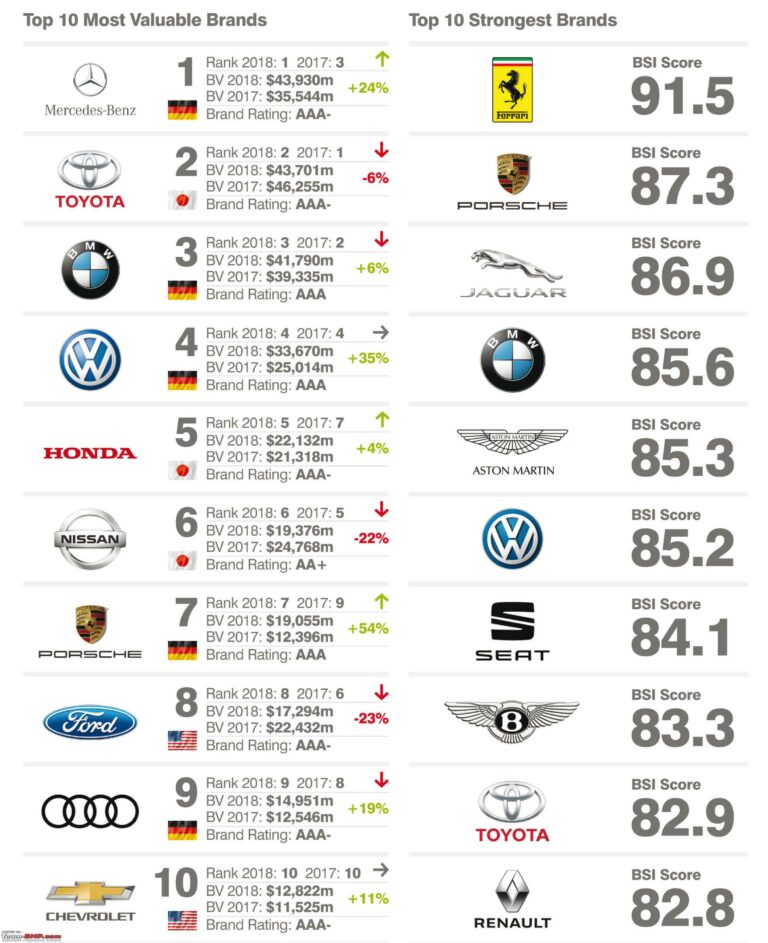New Car Brands: Navigating the Automotive Frontier
New Car Brands: Navigating the Automotive Frontier cars.truckstrend.com
The automotive industry, long dominated by a handful of legacy manufacturers, is undergoing an unprecedented transformation. Fuelled by technological advancements, shifting consumer preferences, and a global push towards sustainability, a vibrant ecosystem of new car brands is emerging. These agile, innovative companies are not merely introducing new models; they are redefining what it means to own, drive, and interact with a vehicle. Understanding this burgeoning landscape of new car brands is crucial for anyone considering a vehicle purchase, as they offer compelling alternatives to traditional options, bringing fresh ideas, cutting-edge technology, and often, a different philosophy to mobility.
This comprehensive guide will delve into the world of new car brands, exploring their genesis, characteristics, benefits, challenges, and practical considerations for potential buyers.
New Car Brands: Navigating the Automotive Frontier
The Genesis of New Automotive Players
The proliferation of new car brands is not a random occurrence but a direct consequence of several converging forces:
- The Electric Vehicle (EV) Revolution: The shift from internal combustion engines (ICE) to electric powertrains has significantly lowered the barrier to entry for new manufacturers. EVs have fewer moving parts, simplifying the mechanical complexity and allowing companies to focus on software, battery technology, and user experience.
- Technological Disruption: Advances in artificial intelligence (AI), connectivity, autonomous driving, and sophisticated infotainment systems have opened doors for tech-first companies to enter the automotive space. These brands often leverage a software-defined approach, enabling over-the-air (OTA) updates and highly personalized experiences.
- Changing Consumer Expectations: Modern consumers increasingly prioritize sustainability, digital integration, and unique brand experiences. New car brands are often better positioned to cater to these evolving demands, offering direct-to-consumer sales models, subscription services, and a strong emphasis on user interface and design.
- Globalization and Capital Availability: Easier access to global supply chains and substantial venture capital funding, particularly for EV and tech startups, has empowered entrepreneurs worldwide to challenge established automotive giants. This is particularly evident with the rise of numerous new car brands from Asia, especially China.

These factors have created fertile ground for innovation, leading to a dynamic and competitive market where agility and forward-thinking design are highly valued.
Diverse Categories of Emerging Brands
The landscape of new car brands is far from monolithic. They can generally be categorized based on their primary focus and market approach:
- EV Pure-Plays: These are companies founded explicitly to produce electric vehicles, leveraging the EV platform for maximum efficiency and innovation. Examples include Lucid, Rivian, Nio, and Xpeng. They often push boundaries in battery range, charging speed, and electric powertrain performance.
- Tech-Centric Innovators: While most new brands are tech-forward, some place an even greater emphasis on advanced software, AI integration, and user interface. They aim to create a "smart device on wheels," offering highly connected and intelligent driving experiences.
- Luxury and Performance Niche: Some new car brands are targeting the premium and high-performance segments, offering bespoke designs, exquisite materials, and exhilarating driving dynamics, often with an electric powertrain. Polestar (from Volvo’s performance division, now an independent EV brand) fits this mold.
- Mass-Market Global Aspirants: Brands like VinFast from Vietnam are aiming for broader global appeal by offering competitively priced EVs and innovative ownership models, seeking to capture significant market share rapidly.
- Chinese Powerhouses: A substantial wave of new car brands originates from China, including BYD (though established, its global EV push makes it feel new), Nio, Xpeng, Li Auto, Zeekr, and Aito. These brands often combine advanced technology, competitive pricing, and ambitious global expansion plans.


Each category brings its unique flavor to the automotive market, enriching consumer choice and fostering intense competition.
Hallmarks of the New Breed: Innovation and Disruption
New car brands distinguish themselves through several key characteristics and innovative approaches:
- Cutting-Edge Electric Powertrains: Virtually all new entrants are focused on EVs, pushing the boundaries of battery technology, charging infrastructure, and electric motor performance, often achieving impressive range and acceleration figures.
- Software-Defined Vehicles: Unlike traditional cars, where hardware dictates functionality, new brands build cars around software. This enables extensive over-the-air (OTA) updates for new features, performance improvements, and bug fixes, much like a smartphone.
- Advanced Connectivity and Infotainment: Expect large, intuitive touchscreens, seamless smartphone integration, voice assistants, and a suite of connected services that enhance convenience and entertainment.
- Direct-to-Consumer Sales Models: Many new car brands bypass traditional dealerships, selling directly to customers online or through brand experience centers. This allows for a more controlled customer journey, transparent pricing, and potentially a more personalized buying experience.
- Emphasis on Sustainability: Beyond just electric powertrains, many new brands integrate sustainable materials in their interiors, adopt eco-friendly manufacturing processes, and focus on the full lifecycle environmental impact of their vehicles.
- Bold and Distinctive Design: Free from legacy design constraints, new car brands often feature avant-garde, minimalist, or highly futuristic aesthetics that stand out from conventional vehicles.
These innovations are not just superficial; they represent a fundamental shift in how cars are designed, manufactured, sold, and experienced.
Advantages of Embracing a New Car Brand
Opting for a new car brand can offer several compelling benefits:
- Access to Latest Technology: New entrants are often first to market with cutting-edge features in autonomy, infotainment, and battery technology.
- Unique Driving and Ownership Experience: From distinctive designs to innovative direct sales models and personalized services, new brands often provide a fresh perspective.
- Strong Environmental Credentials: With a primary focus on electric vehicles, these brands typically offer zero-emission driving and often prioritize sustainable manufacturing practices.
- Potential for Rapid Innovation: Thanks to their agile structures and software-centric approach, new car brands can often iterate and update their vehicles much faster than traditional automakers.
- Customer-Centric Approach: Many new brands are building their reputation on exceptional customer service, direct engagement, and a community-focused philosophy.
For early adopters and tech enthusiasts, these advantages can make a new brand a highly attractive proposition.
Navigating the Uncharted Waters: Challenges and Risks
While exciting, investing in a new car brand also comes with its share of challenges and considerations:
- Brand Recognition and Trust: Lacking decades of history, new brands need to build trust and prove their reliability, which takes time.
- Service and Infrastructure Limitations: A primary concern is the availability of service centers, qualified technicians, and genuine spare parts, especially in regions where the brand is just establishing itself.
- Resale Value Uncertainty: Without a track record, predicting the long-term resale value of a new brand’s vehicle can be difficult, potentially leading to higher depreciation.
- Financial Stability of the Company: As startups, some new brands face significant financial hurdles. There’s a risk, albeit small for major players, that a company might face severe financial distress or even cease operations.
- Early Adopter Issues: Like any new technology, initial production runs of vehicles from new brands might experience software glitches, minor manufacturing defects, or require more frequent updates as they mature.
- Limited Model Range: Most new brands start with one or two flagship models, offering less variety than established automakers.
Understanding these risks is crucial for making an informed decision and mitigating potential issues.
Making an Informed Decision: Practical Advice for Buyers
If you’re considering a vehicle from a new car brand, here’s some practical advice:
- Thorough Research is Key: Dig deep into the company’s background, funding, leadership team, and production capabilities. Look for news about their financial health and manufacturing progress.
- Scrutinize Warranty and Service Plans: Understand the warranty coverage for the battery, powertrain, and general vehicle. Inquire about the service network – where will you take your car for maintenance or repairs? Do they offer mobile service or pickup/delivery?
- Read Independent Reviews and Owner Forums: Look beyond brand-sponsored content. Seek out independent automotive reviews, long-term tests, and discussions on owner forums to get a realistic picture of the vehicle’s performance, reliability, and common issues.
- Test Drive Extensively: Don’t just take a quick spin around the block. Try to experience the car in various driving conditions, test out all the tech features, and assess its comfort and ergonomics.
- Assess Software Maturity: Pay attention to the infotainment system’s responsiveness, the smoothness of ADAS features, and the frequency/quality of OTA updates. Ask about their software development roadmap.
- Consider Leasing Options: If resale value uncertainty is a major concern, leasing might be a safer option as it transfers the depreciation risk to the leasing company.
- Be Prepared for the "Early Adopter" Experience: While exciting, new technology can sometimes come with minor inconveniences or require patience as the brand refines its product and services.
The Road Ahead: Future Outlook for New Car Brands
The future for new car brands is dynamic and promising, albeit competitive. We can expect:
- Continued Innovation: The race to develop more efficient batteries, advanced autonomous driving systems, and hyper-connected cabins will intensify.
- Consolidation: As the market matures, some smaller or less successful new brands may be acquired by larger players or cease operations, leading to a period of consolidation.
- Global Expansion: Many new car brands, particularly from China, will continue their aggressive expansion into European, North American, and other international markets.
- Blurring Lines: The distinction between traditional automakers and new tech-first brands will continue to blur as established companies adopt new technologies and business models.
The emergence of new car brands is a clear indicator of a profound shift in the automotive industry, offering consumers more choice, greater innovation, and a glimpse into the future of mobility.
Illustrative Examples of New Car Brands and Their Offerings
Please note: Prices are estimated starting MSRP in USD and are subject to change based on market, trim, and features. They are provided for illustrative comparison only.
| Brand Name | Origin | Primary Focus | Key Differentiators | Estimated Starting Price Range (USD) |
|---|---|---|---|---|
| Tesla | USA | Premium & Mass-Market EV | Pioneering EV tech, Supercharger network, Autopilot, OTA updates, direct sales model | $40,000 – $100,000+ |
| Rivian | USA | Adventure/Lifestyle EV | R1T Truck, R1S SUV, off-road capability, unique design, "adventure network" | $75,000 – $95,000+ |
| Lucid | USA | Ultra-Luxury EV | Longest range EVs, ultra-fast charging, premium design, high performance | $70,000 – $180,000+ |
| Polestar | Sweden | Performance EV | Scandinavian design, Google Android Automotive OS, performance focus, sustainable materials | $50,000 – $80,000+ |
| Nio | China | Premium EV | Battery Swap Technology, Nio House lifestyle, advanced ADAS, subscription services | ~$45,000 – $70,000+ (Chinese market conversion) |
| Xpeng | China | Tech-Focused EV | Advanced ADAS (XPilot), intelligent cockpit, competitive pricing, EV chargers | ~$35,000 – $60,000+ (Chinese market conversion) |
| VinFast | Vietnam | Mass-Market EV | Global expansion, competitive pricing, battery subscription model (in some markets) | $40,000 – $70,000+ |
| Zeekr | China | Premium/Performance EV | Geely backing, high-performance EVs, advanced tech, bespoke user experience | ~$40,000 – $70,000+ (Chinese market conversion) |
Frequently Asked Questions (FAQ) about New Car Brands
Q1: What defines a "new car brand" compared to an established one?
A1: A "new car brand" typically refers to an automotive manufacturer that has emerged in recent years, often within the last decade or so, and is usually characterized by a focus on electric vehicles, advanced technology, direct-to-consumer sales, and a different business model than legacy automakers.
Q2: Are new car brands reliable?
A2: Reliability can vary. While some new car brands have demonstrated excellent quality from the outset, others may experience early production issues or software glitches common with new technologies. It’s crucial to research specific models and read independent reviews. Warranties are also a key factor.
Q3: Is it risky to buy from a new car brand?
A3: There can be higher risks compared to established brands, primarily related to brand longevity, service network availability, and uncertain long-term resale values. However, these risks are often balanced by cutting-edge technology, unique features, and a potentially more personalized ownership experience.
Q4: How do new car brands typically handle servicing and maintenance?
A4: Many new car brands are building their own service networks, which may be sparser than traditional dealerships initially. Some offer mobile service, remote diagnostics, or partner with existing service centers. It’s vital to inquire about their specific service strategy in your area before purchase.
Q5: Will new car brands replace traditional automakers?
A5: Unlikely to fully replace, but they are certainly pushing traditional automakers to innovate faster. The automotive landscape is likely to evolve into a mix of established giants adapting to new technologies and agile new entrants carving out significant market share, leading to a more diverse and competitive industry.
Conclusion
The emergence of new car brands marks a pivotal moment in automotive history. These companies are not just building cars; they are crafting experiences, challenging conventions, and accelerating the transition to a more sustainable and technologically advanced future. While they present both exciting opportunities and unique challenges, their disruptive influence is undeniable. For consumers, the rise of new car brands means more choice, greater innovation, and the chance to be at the forefront of mobility’s next chapter. By understanding their characteristics, weighing the benefits against the considerations, and conducting thorough research, buyers can confidently navigate this exciting new frontier and find a vehicle that truly aligns with their vision of the future.






